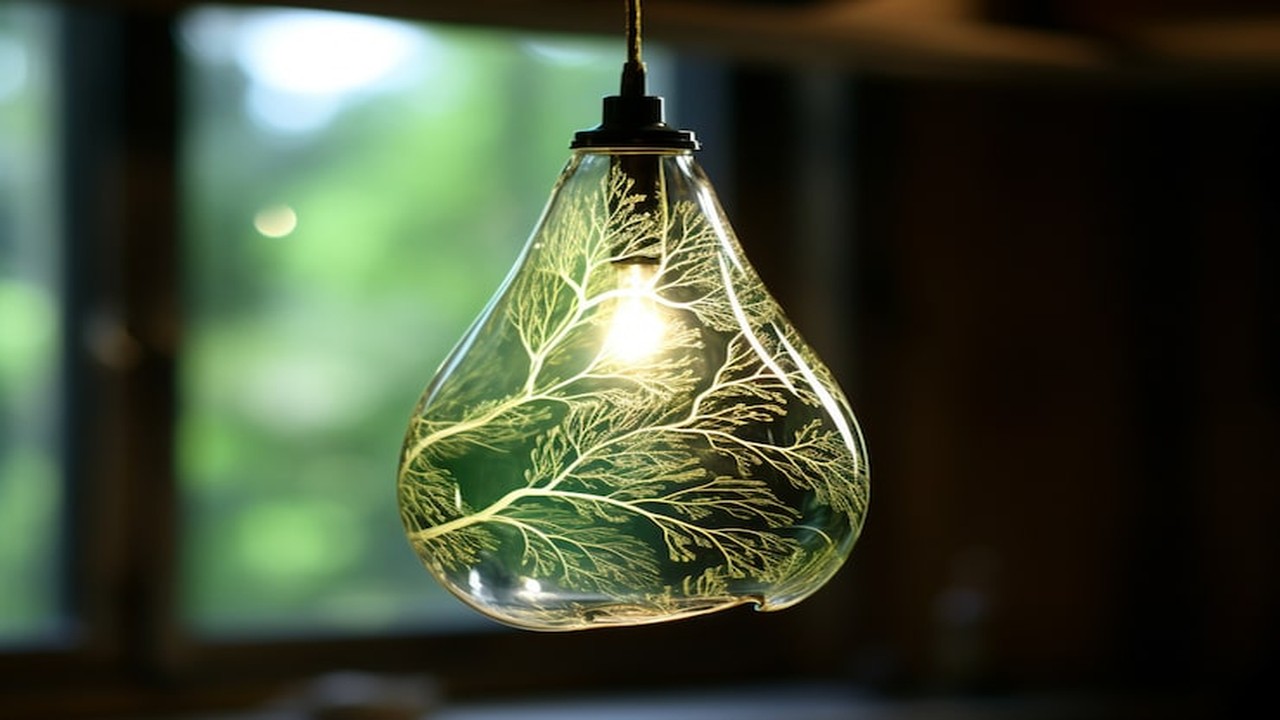 In a groundbreaking fusion of design and biology, Polybion and Natural Urbano have illuminated the world of lighting with LapsoCelium: a living, sculptural lamp crafted from cultivated bacterial cellulose. This innovative collaboration showcases the transformative power of biomaterials, offering a glimpse into the future of sustainable design. From the unique patterns of cellulose sheets to the material's eco-friendly production process, discover how this partnership is redefining the intersection of artistry and sustainability in the global supply chain landscape.
In a groundbreaking fusion of design and biology, Polybion and Natural Urbano have illuminated the world of lighting with LapsoCelium: a living, sculptural lamp crafted from cultivated bacterial cellulose. This innovative collaboration showcases the transformative power of biomaterials, offering a glimpse into the future of sustainable design. From the unique patterns of cellulose sheets to the material's eco-friendly production process, discover how this partnership is redefining the intersection of artistry and sustainability in the global supply chain landscape.
Transformative Power of Biomaterials
The collaboration between Polybion and Natural Urbano in creating LapsoCelium exemplifies the transformative power of biomaterials in the design industry. By crafting a living, sculptural lamp from cultivated bacterial cellulose, the partnership showcases the innovative possibilities of sustainable materials. The use of bacterial cellulose not only offers a unique aesthetic appeal with its translucent and sculptural qualities but also highlights the potential for eco-friendly production processes. This shift towards biomaterials signifies a broader trend in the industry towards more sustainable and environmentally conscious practices, aligning with the ethos of CommonShare in promoting ethical sourcing and transparency in global supply chains.
The development of LapsoCelium underscores the importance of leveraging nature-inspired solutions in design and manufacturing. Polybion 's approach of feeding bacteria agro-industrial fruit waste to produce cellulose structures demonstrates a circular economy model that repurposes waste into valuable resources. This sustainable production process not only reduces environmental impact but also creates opportunities for innovative applications across various industries beyond lighting design. As companies increasingly prioritize sustainability, biomaterials like bacterial cellulose present a promising avenue for driving positive change in the global supply chain landscape.
Redefining Artistry and Sustainability
The intersection of artistry and sustainability is redefined through the creation of LapsoCelium by Polybion and Natural Urbano. The lamp's design, inspired by the unique patterns formed by bacteria during cultivation, embodies a harmonious blend of creativity and environmental consciousness. This fusion of aesthetics and sustainability not only challenges traditional notions of design but also sets a new standard for responsible innovation in the industry. As consumers become more discerning about the origins and impact of products, collaborations like this serve as a beacon for companies seeking to differentiate themselves through purpose-driven initiatives.
The emphasis on individuality and uniqueness in LapsoCelium speaks to a broader shift towards personalized and artisanal products in the market. Polybion 's commitment to producing irreplicable lamps through the natural variations in bacterial cellulose sheets aligns with the growing demand for exclusive and sustainable offerings. By highlighting the inherent beauty of imperfections and natural textures, the collaboration with Natural Urbano not only elevates the concept of lighting design but also underscores the value of authenticity and craftsmanship in a world dominated by mass production. This focus on craftsmanship and sustainability resonates with CommonShare's mission of promoting transparency and traceability in supply chains, fostering a culture of conscious consumption and ethical business practices.
Sustainable Innovation in Manufacturing
The operational success of Polybion's solar-powered bacterial cellulose manufacturing facility marks a significant milestone in sustainable innovation within the industry. By leveraging renewable energy sources and repurposing agro-industrial waste, the company exemplifies a commitment to reducing carbon footprint and promoting resource efficiency. The establishment of an industrial-scale production plant in close proximity to fruit-packing industries not only streamlines the supply chain for raw materials but also minimizes transportation-related emissions, further enhancing the overall sustainability of the manufacturing process.
The global availability of Polybion 's bacterial cellulose as a leather alternative underscores the scalability and versatility of biomaterials in addressing environmental challenges. As the fashion industry increasingly seeks sustainable alternatives to traditional materials, the cultivation of cellulose promises a viable solution that is both vegan and organic. This shift towards eco-friendly textiles not only aligns with evolving consumer preferences for ethically sourced products but also sets a precedent for other industries to adopt innovative and sustainable materials in their manufacturing processes. Through initiatives like the 2023 Fashion for Good Innovation Program, Polybion demonstrates a commitment to driving positive change through sustainable practices, paving the way for a more environmentally conscious future in the global marketplace.
Conclusion
The collaboration between Polybion and Natural Urbano in creating LapsoCelium not only showcases the transformative power of biomaterials but also sets a new standard for sustainable innovation in design and manufacturing. By redefining the intersection of artistry and sustainability, this partnership underscores the importance of nature-inspired solutions and circular economy models in driving positive change across global supply chains. As companies increasingly prioritize ethical practices, the success of Polybion 's solar-powered manufacturing facility and the scalability of bacterial cellulose as a sustainable alternative highlight the potential for impactful, eco-conscious initiatives. This visionary collaboration serves as a compelling example of purpose-driven innovation, urging businesses to embrace sustainable materials and responsible practices to shape a more environmentally conscious future.